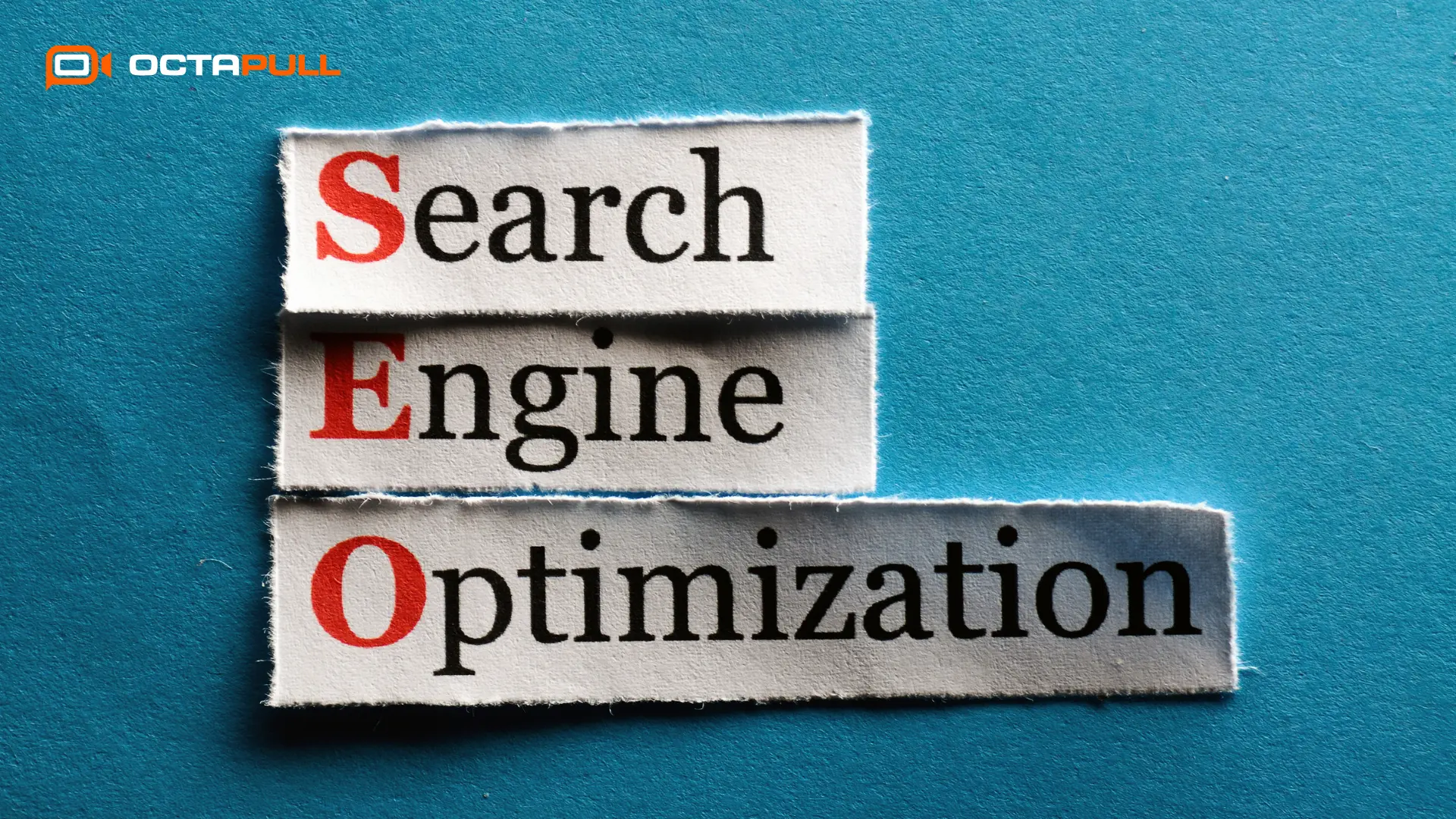In today’s digital era, running a business isn’t much different from managing a physical store. You still need to be in the right place, where potential customers can find you, notice you, and step inside. The only difference is that this “place” is no longer a street corner, but the vast world of the internet.
That’s where SEO (Search Engine Optimization) comes in. Often called the cornerstone of digital marketing, SEO helps position your website right on the busiest avenue of this digital city, where visibility drives opportunity.
In this blog post, we’ll show that SEO isn’t just a marketing buzzword; it’s a systematic process that can directly shape your business’s online success. You’ll explore how search engines work behind the scenes and understand why SEO is essential for growing your digital presence.
What Is SEO?
SEO (Search Engine Optimization) is the practice of improving a website’s visibility in the organic results of search engines. But it’s much more than just technical configurations and keyword placement.
At its core, SEO is about understanding what your target audience is searching for and creating valuable content that best answers those questions.
Think of SEO as a bridge between your website and search engines. While search engines work to interpret complex user queries and deliver the most relevant results, SEO helps your website align with those queries more effectively.
When your SEO performance is strong, your website can earn top rankings for relevant search terms, bringing more visitors to your digital storefront and boosting your brand’s online visibility.
How Do Search Engines Actually Work?
It’s impossible to talk about SEO without first understanding how search engines operate. Have you ever wondered how Google decides which websites appear at the top of the results?
In most search engines, this process can be broken down into three main steps: Crawling, Indexing, and Ranking.
Crawling
Search engine bots—such as Googlebot—constantly explore the web to discover new or updated pages. When you make changes to your website, these bots follow links and scan your content to understand what’s new.
Indexing
Once a page is crawled, it’s stored in a massive database called the index. Think of this as the search engine’s library catalog—it allows search engines to quickly locate and retrieve relevant pages when someone performs a search.
Ranking
Finally, when a user submits a query, the search engine’s algorithm analyzes all indexed pages to determine which ones are most relevant and trustworthy. It considers factors such as keyword relevance, content quality, page speed, and mobile compatibility to rank results from the most valuable to the least.
For example, if someone searches for “shoes,” the search engine evaluates all websites related to that term and displays the most relevant and optimized pages first.
Why is SEO Important for Business Success?
At first glance, you might wonder why search engine optimization matters so much for your business. After all, SEO isn’t just about ranking at the top of Google; it’s about what that visibility represents.
A strong SEO strategy builds credibility, connects you with potential customers, and ultimately drives sales growth. Below are three key reasons why SEO plays a crucial role in your business success:
Visibility and Brand Awareness
Appearing at the top of search results within your industry boosts both brand recognition and authority.
Imagine a team researching software solutions for a new project. If your website appears at the top of their search results, your product instantly gains visibility—and your brand earns their trust before any direct contact is made.
Attracting High-Quality Traffic
Organic traffic is often the most valuable type of traffic your business can receive. When users actively search for solutions or products, your website’s ability to provide the right answers significantly increases the likelihood of conversion.
For example, imagine you own a watch brand. With a well-optimized website and a strong SEO strategy, you can attract more visitors than your competitors. More traffic doesn’t just mean more clicks; it means more potential customers genuinely interested in what you offer.
Building Trust and Authority
Search engines tend to favor websites that are reliable, relevant, and provide an outstanding user experience. By consistently publishing high-quality content and maintaining a well-structured website, your brand can naturally position itself as a trusted authority in its industry.
In today’s digital landscape, achieving a high ranking in search results goes far beyond visibility it directly translates into credibility and trust. Users often associate top-ranking businesses with professionalism, reliability, and quality. That’s why SEO isn’t just a marketing strategy; it’s a fundamental driver of brand reputation and long-term success.
Common Mistakes to Avoid in SEO Processes
SEO can be complex, and this complexity often leads to common mistakes—especially for new or growing businesses. Avoiding these pitfalls is essential to building a strong and sustainable SEO strategy. Here are some of the most frequent missteps marketers make:
Insufficient Keyword Research
Creating content without understanding what your audience is actually searching for is like rowing in the wrong direction; you’re moving, but not toward your goal.
Effective SEO begins with thorough keyword research. This process helps you identify what your target audience needs and how they phrase their searches.
For instance, if you’re a software company, you should analyze the search terms your potential users might use, then craft your pages and content to match those specific queries.
Lack of Mobile Compatibility
Ask yourself this: Do you perform most of your searches on your computer or your phone? According to recent studies, over 96% of internet users access the web via mobile devices.
With such a massive share of mobile traffic, a website that isn’t mobile-friendly risks losing a significant portion of potential visitors and, as a result, slipping down in search rankings. Ensuring your site adapts seamlessly to mobile screens is no longer optional; it’s essential for both user experience and SEO success.
Slow Site Speed
As you might expect, users dislike waiting for a page to load. Search engines know this—and they’re reluctant to promote slow websites.
When pages take too long to load, visitors tend to leave immediately. This increases your bounce rate, which signals to search engines that your site delivers a poor user experience. A fast, optimized site not only improves rankings but also keeps visitors engaged and converts them into customers.
Duplicate or Low-Quality Content
One of SEO’s core goals is to deliver the best possible content to users. This means websites must offer unique, valuable, and comprehensive information to achieve higher rankings.
Search engines reward content that provides depth, originality, and genuine value—while penalizing repetitive, shallow, or irrelevant material. In short, quality always outweighs quantity in the world of SEO.
5 Most Useful SEO Tips for Beginners
Now that we understand how SEO works, why it matters for businesses, and which common mistakes to avoid, it’s time to take action. The key to success is to approach SEO consistently and systematically.
While SEO involves many detailed tasks, here are five essential tips every new business should know:
1. Conduct Keyword Research
Identify the most important keywords for your business. Focus on understanding your target audience’s search terms and intent. Then, naturally incorporate these keywords into your website content to align with what users are looking for.
2. Optimize the Technical Aspects of Your Website
Website speed is critical for both user experience and SEO rankings. Ensure your site is mobile-friendly, create search engine–optimized URLs, fix broken links, and optimize images and themes. A technically solid website sets the foundation for all other SEO efforts.
3. Create Valuable Content
Publish high-quality content such as blog posts, guides, and infographics that address your audience’s needs.
A blog post on a topic that a remote team might need, such as “The Top 5 Benefits of Workspace Solutions for Remote Teams”, benefits users while also improving your SEO performance.
4. Link Building
Backlinks from reputable websites signal to search engines that your site is an authority. Even internal links, connecting your own pages within your content, are valuable for SEO. Focus on earning high-quality external links and structuring internal links thoughtfully.
5. Analyze Your Strategy with Data
SEO is not a “set it and forget it” strategy. Continuously monitor your performance to see what works and what doesn’t. Use data to refine your content, technical adjustments, and link-building efforts.
SEO is a strategic approach to building your online presence. It’s about understanding your audience, delivering the best content, and establishing your brand as an authority in the digital world.
By understanding how search engines operate, avoiding common pitfalls, and implementing proven strategies, your business can achieve greater visibility, credibility, and success online.
Every step you take toward SEO success should be consistent and data-driven. Remember, the best way to reach potential customers is to position your business in the best possible spot in the digital world.
Conclusion
In today’s digital world, SEO is far more than a technical task—it’s a strategic cornerstone for building visibility, credibility, and long-term business success.
By understanding how search engines work, avoiding common mistakes, and consistently applying proven strategies, your website can attract the right audience, provide valuable content, and position your brand as an authority in your industry.
Start implementing these strategies today, and make sure your business occupies the best possible position in the digital landscape. Your online success depends on it.



